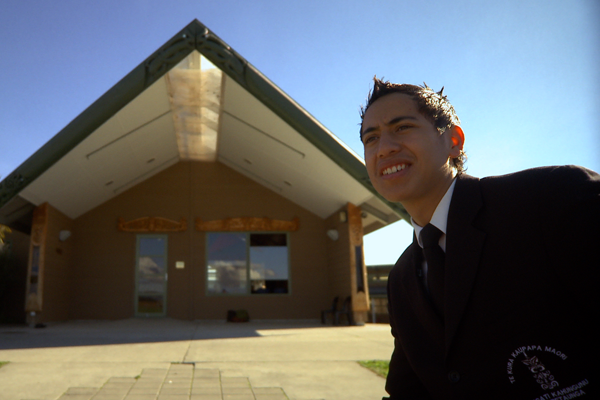Maori Boy Genius
Director: Pietra Brettkelly
Documentaries often struggle to find the delicate balance between good storytelling and mere exploitation – a challenge made all the more difficult when the subject-matter revolves around children. Such is the difficulty faced by Maori Boy Genius, a competent, intelligent examination of Ngaa Rauuira, the titular 18-year-old boy wonder, who finds his path to wisdom marred by politics, poverty and puberty.
Brettkelly’s conscientious approach to Ngaa Rauuira, as she naturally tracks his rise from completing his first degree at age 13, to enrolling at Yale at 15, means the film never venerates or worships its subject (despite the title implying otherwise). Instead, it is the “supporting cast” that proves more worrisome – parents willing to max out credit cards for $45,000 in school fees, an iwi with a political agenda – with many seeming eager to simply exploit his talents.
Brettkelly sheds light on the ambitions not only of the prodigal son, but of his elders and impoverished community. The weight of expectation on this boy’s shoulders is palpable (thrust upon him since the significant appearance of a “double rainbow” at his birth), and it is testament to Ngaa Rauuira’s considerable charisma and maturity that he carries the film without ever coming across as precocious or pretentious. Indeed, at the risk of sounding woefully PC, it’s refreshing to see a New Zealand film approaching a Maori subject without any agenda. Whether it’s the heavy-handedness of Once Were Warriors, or the satire of Boy, subtlety has never been our strong suit when depicting indigenous issues on the big screen, but Brettkelly’s natural documentary style lets the story tell itself.
The film’s title is evidently something of a hyperbole – the director herself confesses that the term “genius” is something of a misnomer. But in terms of what Ngaa Rauuira could, or will, represent to his community, it is entirely accurate. And it’s Brettkelly’s examination of these heavy expectations, whether held by his iwi, his friends, or the film’s audience itself, which makes the film worthwhile.







